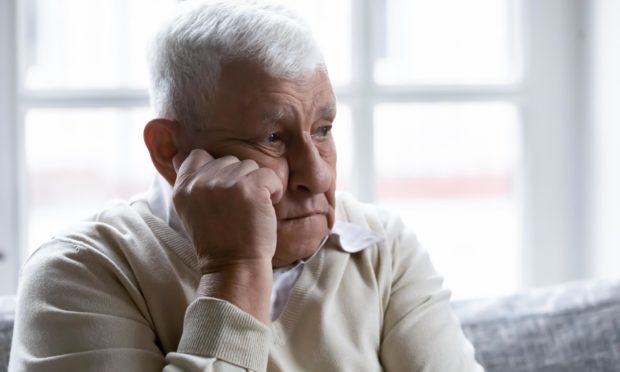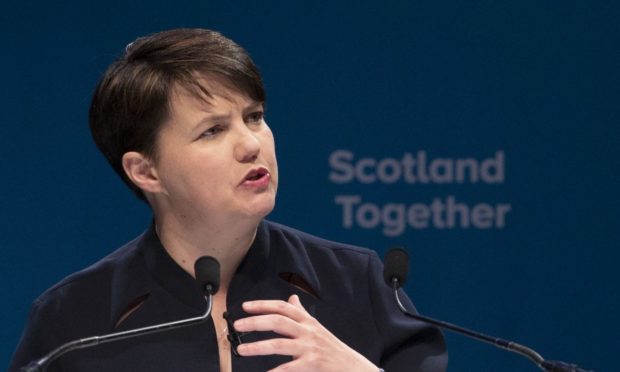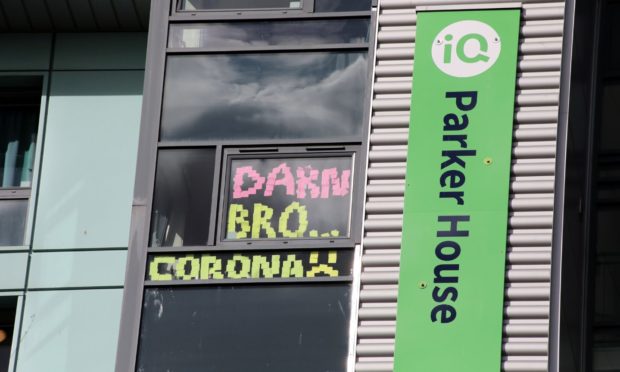For many of us, Christmas is the happiest, most joyful time of the year. But for others, who can feel lonely at the best of times, it’s the most difficult.
When you add in a global pandemic, which has forced us all to live under tighter restrictions than we’ve ever experienced before, our resilience can be low and even issues or incidents we would ordinarily overcome can begin to affect our mental health.
A recent survey carried out by the Mental Health Foundation found that 24% of Scottish adults felt loneliness because of coronavirus.
It’s no surprise that the number of people experiencing those feelings had doubled during lockdown when we were told to stay indoors, away from all but essential shops and exercise, stay out of each others’ houses and when meeting places – like cafes, bars or restaurants – were told to shut their doors.
For students packed off to halls of residence and told not to travel home at weekends, or residents in care homes who’ve not been allowed visitors, it has been a horrible deprivation.
And, while the pandemic has undoubtedly seen an increase in loneliness, this has been a growing issue across Scotland for some time – one that predates the restrictions that prevented many vulnerable people from having any face-to-face, or even remotely close, contact.
Last year, one in six over-65s in Scotland felt more lonely at Christmas than at any other time of the year.
Figures from Age Scotland state that 100,000 older people in Scotland feel lonely all or most of the time, with 200,000 going half a week without a visit or call from anyone.
And loneliness isn’t just age specific – 40% of 16 to 24-year-olds feel isolated and lonely, too.
Worrying trends
The Scottish Conservatives have been raising these worrying trends for a number of years. In our 2018 plan on this subject, we called for a national loneliness awareness campaign.
This Christmas, that’s more necessary than ever, and we are making that call even more loudly.
We need to harness the community spirit that was evident, especially during the darkest days of lockdown in spring, and launch a national drive to prevent loneliness.
Otherwise, too many people will be condemned to a bleak Christmas, made worse by the long months of self-isolation they’ve had to go through this year.

In October, I asked the first minister in the Scottish Parliament to develop and publish a Christmas loneliness strategy, with the main aim of helping people overcome social isolation during this festive season.
I told her how The Samaritans helpline fields around 300,000 calls across the UK on Christmas day in the average year – and that this year is not even close to being average.
Lonely on Christmas Day
Research published by the Campaign to End Loneliness showed that more than a quarter of adults are worried about being alone on Christmas Day and more than half say that they will not see elderly relatives because they are afraid of endangering them, although they know that that will also increase their loneliness.
While I understand why we now cannot see restrictions ease much over Christmas, it only confirms why we need to see more action at the government level.
That’s why we put our request for a full strategy to combat loneliness this Christmas – backed by genuine support and widespread promotion – back to the Scottish Government last month.
Unfortunately, while we’ve seen some welcome promises of further funding, there’s been nothing in the way of a proper plan to really get a grip of this problem.
While keeping people safe is the most important thing, it is also important to give them hope.
Everybody understands that it is impossible for every seat that is normally taken at the family table to be filled this Christmas, but nobody should have to sit alone.
At the end of a year like no other – when people have been strained to breaking point and isolation has been one of the key prescriptions in keeping safe – we do need to feel connected, even if it’s just wrapping up warm and agreeing to meet outside.

